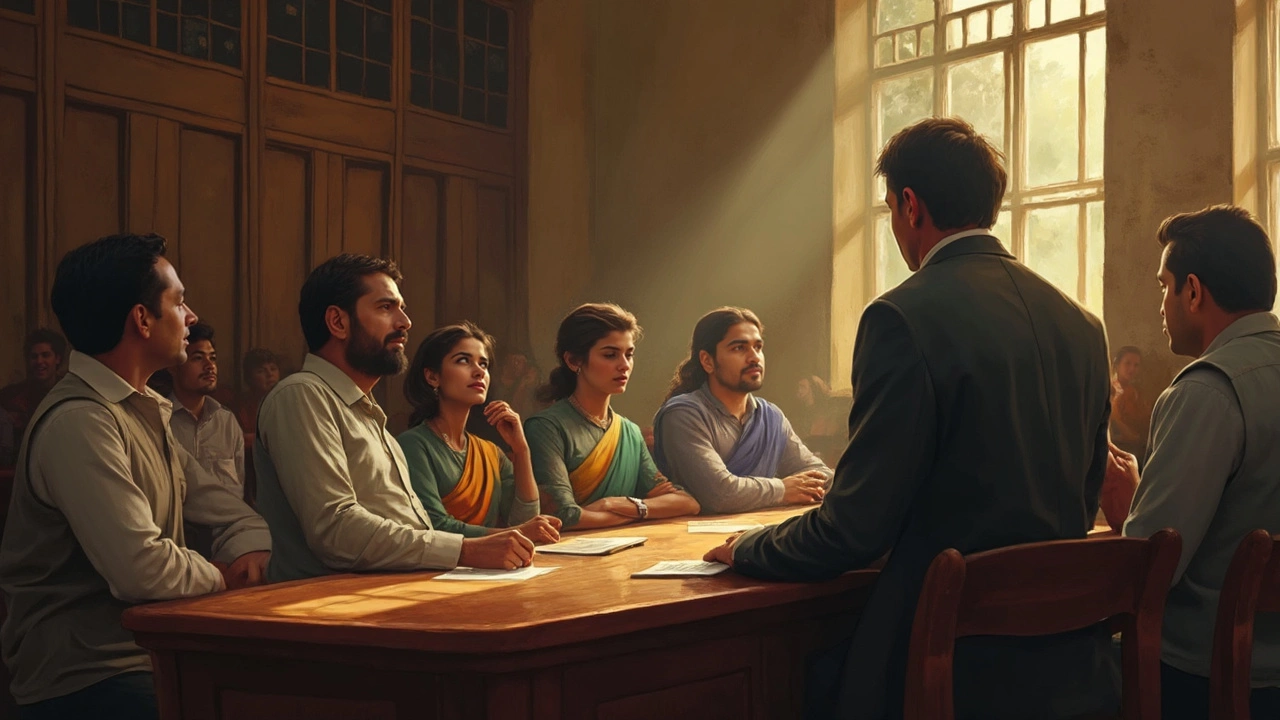Civil Court – Simple Guide for Everyday Needs
If you’re dealing with a money dispute, property issue, or a contract problem, chances are you’ll end up in civil court. Unlike criminal courts, civil courts settle disagreements between private parties, not crimes. The goal is to get a fair order—like a payment, a property right, or a specific action—without any jail time.
Most people think civil courts are confusing, but the process is actually pretty straight‑forward once you know the steps. First, you file a plaint (the claim) with the appropriate district court. Then the other side gets a chance to reply. After that, both sides gather evidence, and the judge decides based on that evidence. If you’re new to this, don’t worry—many of the steps are similar to what you see in everyday paperwork.
What Types of Cases Reach Civil Court
Anything that involves rights, money, or property can land in civil court. Here are the most common categories:
- Property disputes – boundary issues, ownership claims, or lease disagreements.
- Money matters – unpaid loans, salary dues, or compensation for damages.
- Family issues – maintenance, alimony, or inheritance fights (note: divorce itself is handled in family court, but related money claims go to civil court).
- Contract breaches – when someone doesn’t keep their side of a deal.
- Tort claims – personal injury, negligence, or defamation cases.
Each type follows the same basic timeline: filing, serving, evidence exchange, and judgment. Knowing which category you fall under helps you pick the right form and avoid delays.
How to Choose a Good Civil Lawyer
Having a lawyer who knows civil court can save you time and money. Here’s a quick checklist:
- Specialization – Look for someone who handles the exact kind of case you have. A property lawyer isn’t the same as a contract lawyer.
- Experience – Ask how many similar cases they’ve won in the last year.
- Fee structure – Some lawyers charge a flat fee, others work on a percentage of the award. Get it in writing.
- Communication – You should feel comfortable asking questions and getting updates.
- Reviews – Check feedback on directories like India Legal Guide to see what past clients say.
Our site lists dozens of civil court lawyers across India. You can filter by city, specialization, and fee range to find a match that fits your budget.
Need a quick read on how evidence works in civil cases? Check out our article “How Civil Cases Are Proven: Evidence, Strategy, and Courtroom Tactics Explained.” It breaks down what judges look for and how you can present a strong case.
Wondering how to calculate damages? The guide “How to Calculate Damages in a Lawsuit: Practical Guide for Claimants” walks you through the numbers step by step.
Whether you’re filing a small claim or a big property dispute, the key is to stay organized, understand the timeline, and pick a lawyer who speaks your language. Civil court may sound formal, but with the right info it’s manageable. Start by gathering all documents, read up on the process, and reach out to a qualified attorney today.
How Do Most Civil Cases End? Breaking Down Civil Court Outcomes
Most civil cases don't actually reach a full trial but are resolved through settlements or dropped before a verdict. This article explains how these cases usually end, what makes people settle, and why going to trial is less common. It digs into the steps of the process and shares useful tips for anyone dealing with a civil lawsuit. You'll also get practical advice on handling settlements and understanding your options if you ever get involved in a civil dispute.
Civil Case Process: What Really Happens in Court?
Ever wondered what goes on in a civil case? This article breaks down each step in plain language, from filing the lawsuit to what happens if things get settled or go to trial. Get simple tips to handle the twists and turns, avoid common slip-ups, and understand what evidence matters. Whether you're dealing with a landlord, a contract dispute, or someone's dog bit yours, get the facts you actually need.
Voir Dire Meaning: The Civil Court Jury Selection Process Explained
This article breaks down what 'voir dire' actually means in civil court cases. You'll get a real look at how the process works, why it's vital during jury selection, and what lawyers and regular folks should pay attention to. We’ll cover practical tips and little-known facts that can help anyone involved in a civil case. If you ever wondered what happens before a trial kicks off, this guide spells it all out. Expect clear, real-world examples and advice.


